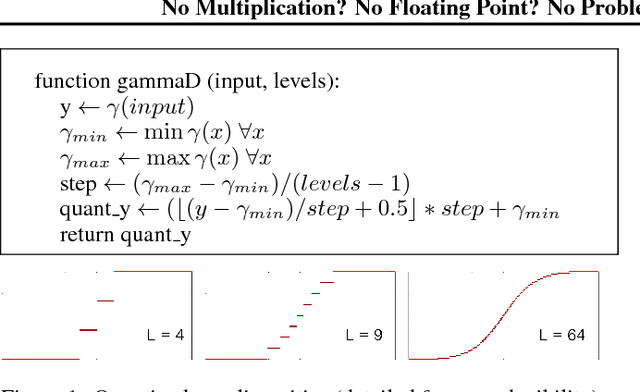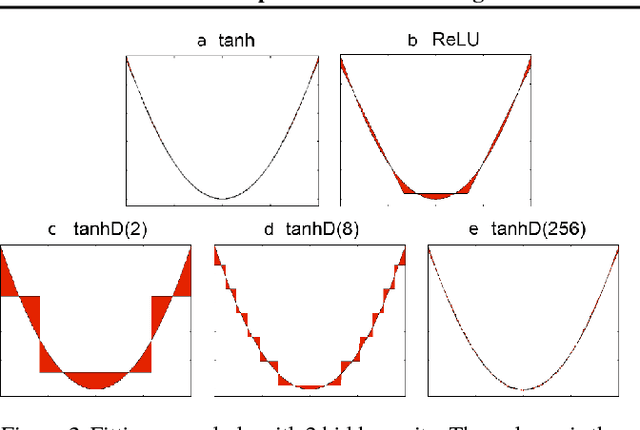No Multiplication? No Floating Point? No Problem! Training Networks for Efficient Inference
Paper and Code
Sep 28, 2018



For successful deployment of deep neural networks on highly--resource-constrained devices (hearing aids, earbuds, wearables), we must simplify the types of operations and the memory/power resources used during inference. Completely avoiding inference-time floating-point operations is one of the simplest ways to design networks for these highly-constrained environments. By discretizing both our in-network non-linearities and our network weights, we can move to simple, compact networks without floating point operations, without multiplications, and avoid all non-linear function computations. Our approach allows us to explore the spectrum of possible networks, ranging from fully continuous versions down to networks with bi-level weights and activations. Our results show that discretization can be done without loss of performance and that we can train a network that will successfully operate without floating-point, without multiplication, and with less RAM on both regression tasks (auto encoding) and multi-class classification tasks (ImageNet). The memory needed to deploy our discretized networks is less than one third of the equivalent architecture that does use floating-point operations.
 Add to Chrome
Add to Chrome Add to Firefox
Add to Firefox Add to Edge
Add to Edge